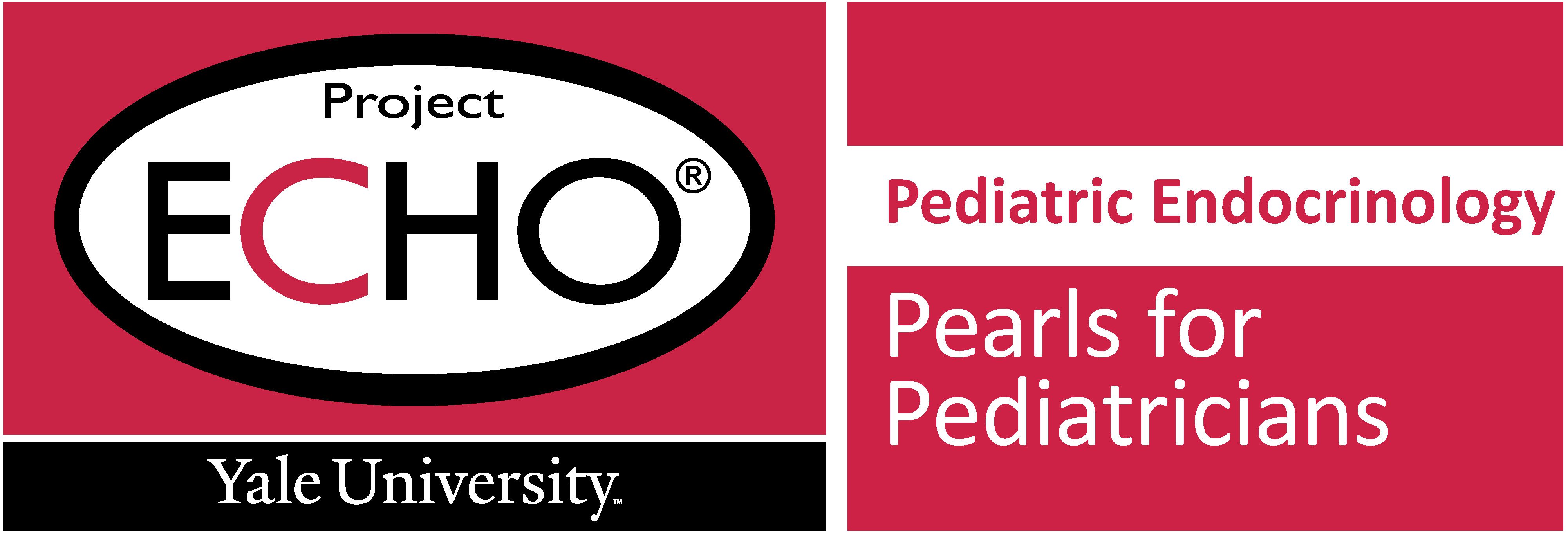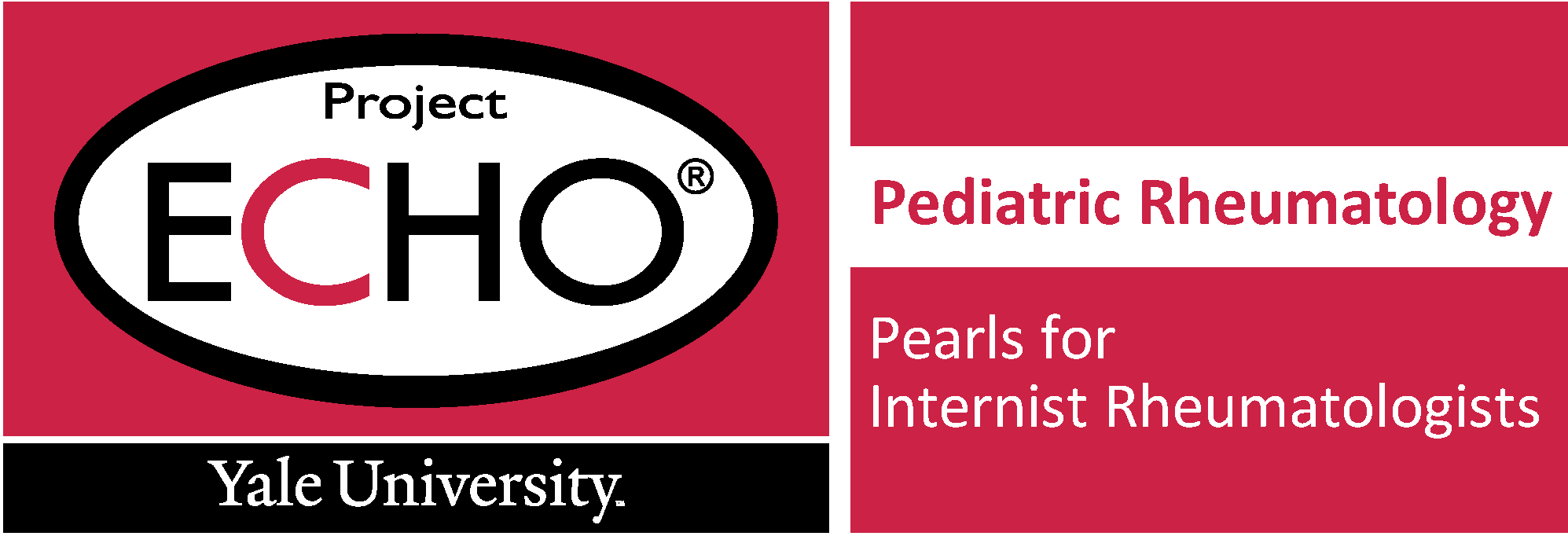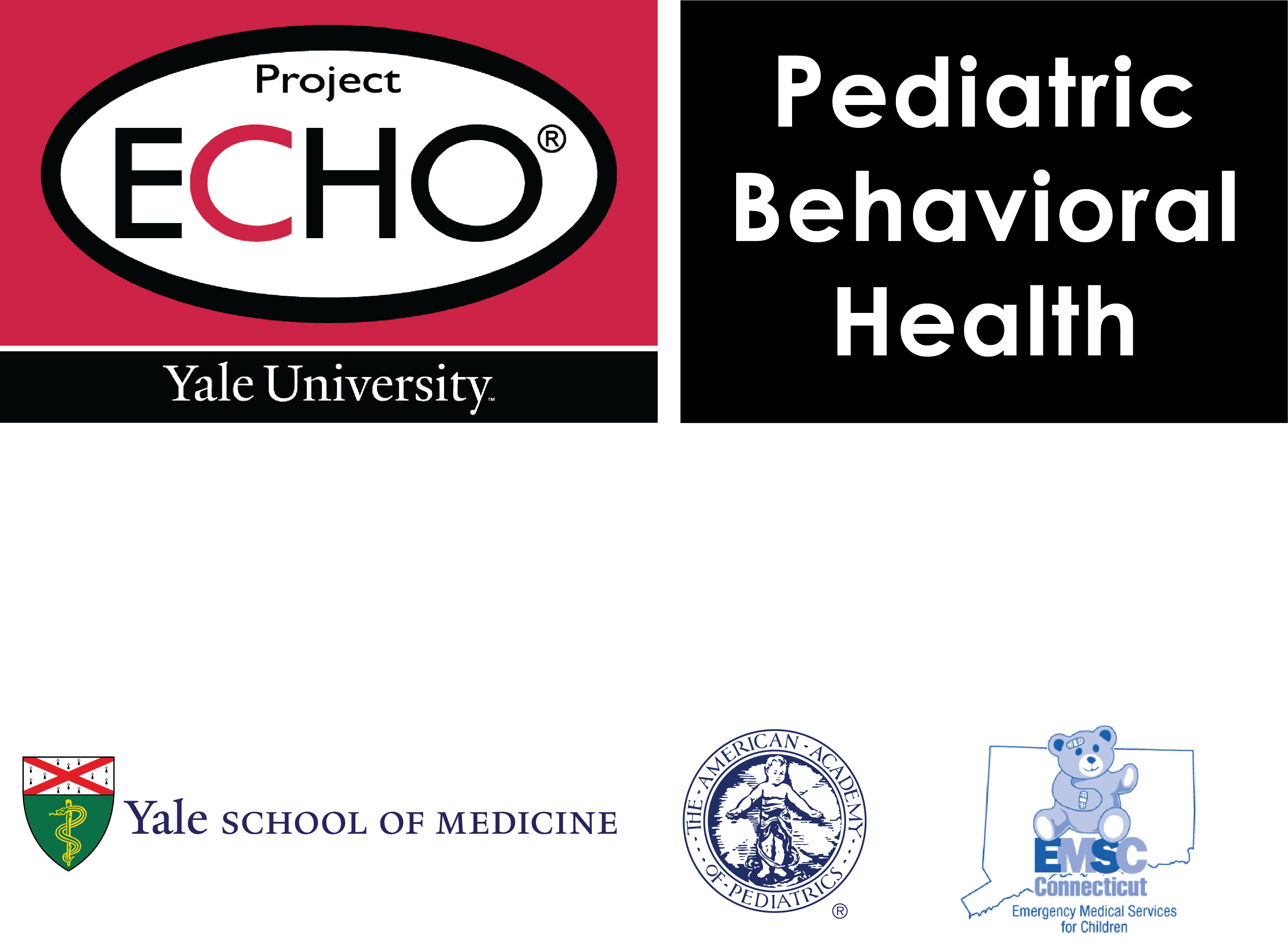CT-AAP and Yale partner to present Project ECHO®
CT-AAP is proud to offer regular online CME through Project ECHO®, in partnership with Yale University, EMSC Connecticut and the PECC Learning Collaborative.
Project ECHO® links expert specialist teams at an academic hub with clinicians in local communities. Our aim is to provide Pediatric Medicine education that is relevant to primary care providers (MD, PA, RN, etc.) in the community setting and provide a venue to both discuss cases that are challenging for providers as well as create relationships among providers such that informal consultations can occur in the future.
Our current ECHO programs include:
- Pediatric Behavioral Health for Nurses
Previous ECHO series included:
- Prehospital PECC (Pediatric Emergency Care Coordinator) Academy
- Child Abuse TeleECHO
- Pediatric Emergency Medicine
- Food Allergy
- Pediatric Endocrinology
- Child Abuse and Neglect Community of Practice
- Pediatric Rheumatology
- Pediatric Emergency Medicine for Nurses
The ECHO sessions includes didactic presentations by interdisciplinary group of specialists on specific topics of interest and in-depth case-based presentations by community clinicians for feedback and recommendations. Clinicians are given access to evidence-based educational resources, learn from expert consultation, and from one another in a comprehensive knowledge network and community of practice. This environment of group learning, using best practice protocols reduces variation in care and may improve the care we provide to an extremely vulnerable group of children!
Project ECHO is committed to addressing the needs of the most vulnerable populations by equipping communities with the right knowledge, at the right place, at the right time. ECHO has grown to reach over 90,000+ learners worldwide.
How It Works
What if everyone could get the high-quality services they need, from local people they know and trust?
Here at the ECHO Institute, in Albuquerque, NM, we train our partners in the ECHO Model™ to help them pursue their missions. People and organizations from all over the world are leveraging the ECHO Model to scale their own social initiatives in fields like healthcare, education, and social justice.
Using proven adult learning techniques and interactive video technology, the ECHO Model™ connects groups of community providers with specialists at centers of excellence in regular real-time collaborative sessions. The sessions, designed around case-based learning and mentorship, help local workers gain the expertise required to provide needed services. Providers gain skills and confidence; specialists learn new approaches for applying their knowledge across diverse cultural and geographical contexts. As the capacity of the local workforce increases, lives improve.
Our Story
Project ECHO was launched in 2003 as a healthcare initiative before expanding into other domains. It grew out of one doctor’s vision. Sanjeev Arora, M.D., a liver disease specialist at the University of New Mexico Health Sciences Center in Albuquerque, was frustrated that he could serve only a fraction of the hepatitis C patients in the state. He wanted to serve as many patients with hepatitis C as possible, so he created a free, educational model and mentored community providers across New Mexico in how to treat the condition.
A study published in the New England Journal of Medicine found that hepatitis C care provided by Project ECHO trained community providers was as good as care provided by specialists at a university.
The ECHO model is not traditional “telemedicine” where the specialist assumes care of the patient, but is instead telementoring, a guided practice model where the participating clinician retains responsibility for managing the patient.

![Screenshot2018-11-2012_00_37[1] Screenshot2018-11-2012_00_37[1]](https://ct-aap.org/wp-content/uploads/2020/03/Screenshot202018-11-202012_00_371.png)
![ScreenShot2019-06-26at1_11_24PM[1] ScreenShot2019-06-26at1_11_24PM[1]](https://ct-aap.org/wp-content/uploads/2020/03/Screen20Shot202019-06-2620at201_11_2420PM1.png)
![ProjectECHO-YaleUniversity-Web-logo[1] ProjectECHO-YaleUniversity-Web-logo[1]](https://ct-aap.org/wp-content/uploads/2020/03/ProjectECHO-YaleUniversity-Web-logo1.jpg)
![ScreenShot2019-11-25at2_47_17PM[1] ScreenShot2019-11-25at2_47_17PM[1]](https://ct-aap.org/wp-content/uploads/2020/03/Screen20Shot202019-11-2520at202_47_1720PM1.png)
![FoodAllergylogo[1] FoodAllergylogo[1]](https://ct-aap.org/wp-content/uploads/2020/03/Food20Allergy20logo1.png)


